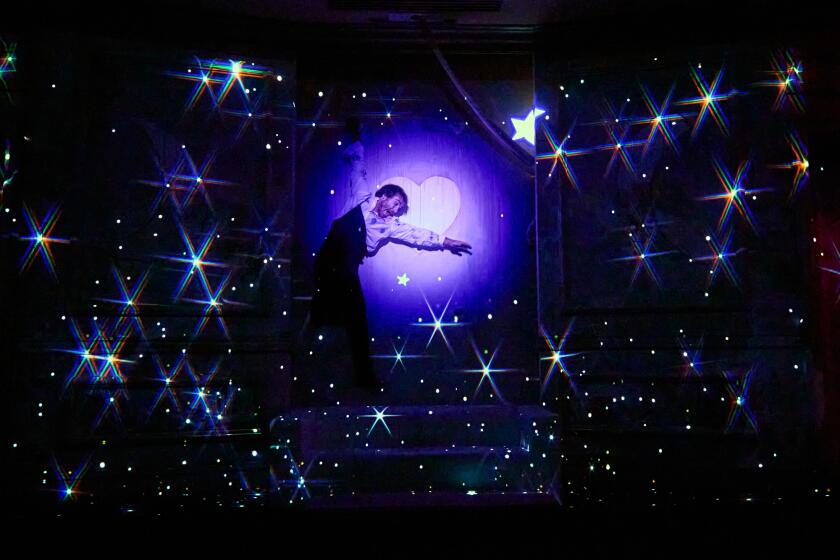THEATER OF VOCALIZATION : ELECTRIC PHOENIX QUARTET AT THE COUNTY MUSEUM
Electric Phoenix may sound more like the name of a refined rock group than one dedicated to the serious new muse. But maybe a little help at popularization is in order, after all.
Whatever the case, Monday Evening Concerts made no mistake in bringing the 8-year-old British vocal quartet to its platform this week in Bing Theater at the County Museum of Art. There wasn’t a single uncouth or raspy tone to be heard. Refined, yes--rock, definitely no.
Also immensely virtuosic, personable, earnest, charming and modest, the four singers--Judith Rees, Linda Hirst, Daryl Runswick, Terry Edwards--and sound engineer John Whiting are an experience unto themselves. They specialize in what is known as extended vocal techniques, a whole range of reinforced harmonics, multiphonics, glottal tremolandos, etc., that, in conjunction with up-to-the-minute electronics, allows the voice to resemble an instrument.
But what Electric Phoenix projects more than anything is a theater of vocalization. Although there is nothing elaborate about its images--the four stand at individual music desks, wearing non-costumes of casual white streetwear--the effects conjure a kind of drama.
To prove the point, most of the agenda--works by Roger Marsh, Trevor Wishart, Gerald Shapiro, Tod Machover and William Brooks--utilize texts written in imaginary or invented language. You could call it sound association over matter, and marvel at how dramatically specific nonsense syllables can be made to seem, depending on the composer’s musical manipulation of them.
Marsh’s “Not a Soul but Ourselves” may work around occasional passages from “Finnegan’s Wake” but much of it comes across like mysterious ditherings: hums and whispers pieced together into a rhythmic mosaic. And the forest murmurs of Wishart’s “Vox 2,” interspersed with wailed oscillations and melismatic flights, was darkly atmospheric.
While Shapiro’s brilliant “Phoenix” seemed like a play of high incident and lively interaction, a sense of doom permeated Machover’s operatic “Famine.” One left the hall Monday knowing that the boundaries have not yet been reached.
More to Read
The biggest entertainment stories
Get our big stories about Hollywood, film, television, music, arts, culture and more right in your inbox as soon as they publish.
You may occasionally receive promotional content from the Los Angeles Times.






